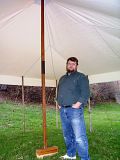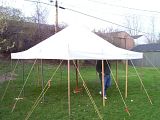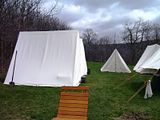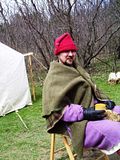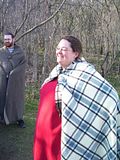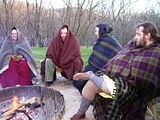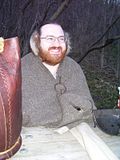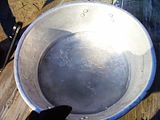I never thought that going to hear an author speak about her newest "Knitting Humor" book would involve learning about new theories into how the
human brain develops. Last night I went to hear
Stephanie Pearl-McPhee, who is on tour promoting her latest book "
Things I Learned from Knitting...whether I wanted to or not."
As always, she was very funny. As always, she made me think. As always, she made me feel that knitting is a superior activity and that I am a better person for it.
The main gist of her lecture was the typical: you are doing something worthwhile and don't feel that you need to explain your hobby/ activity or validate it. Participating in the SCA for nearly 2 decades has given me ample opportunities to experience the blank looks from co-workers when I explain what I do on my weekends. Getting weird looks when I pull out a stocking in progress on the bus, in line, at the movies, at a restaurant, is not a big deal for me.
"I'm knitting so I don't kill you...."She spoke about
brain waves.
We have 4: Beta, Alpha, Theta, and Delta.
Beta is when we are in high alert/ working out a difficult problem
Alpha is when we are in a relaxed or reflecting state
Delta is when we are sleeping
Theta is also called the "twilight state" and most people experience this just as they are falling asleep or just as they are waking up. Theta is also the experience we sometimes have when driving and we don't remember the last 10 miles. Athletes reach theta, as they say "the zone" when running, rowing, biking. You clear your mind and concentrate on a repetitive movement. Einstein trained his mind to spend time in Theta. Interesting.
Theta is the state that people reach during meditation and new studies have shown that people who achieve Theta each day have the ability to process complex concepts easier. The studies have been centered around Monks, who achieve Theta during meditation and practice meditation for several hours a day. Theta appears to effect the area of the brain that controls
happiness (left pre-frontal cortex) by making it get bigger so that the effects of meditation is felt for longer periods of time.
Scientists have come to the conclusion that achieving a Theta state twice a day, 20 minutes each time, is beneficial since it calms our mind, makes us happy and makes us
smarter.
How does one achieve Theta? Monks use a repetitive word, chant, sound, action to do this. Hmmmmmmm.... repetitive action, a couple times a day, gosh I wonder what I could do? If I can achieve Theta every time I knit, in theory it's making me
calmer, happier and more centered.
Obviously I need to knit more.
